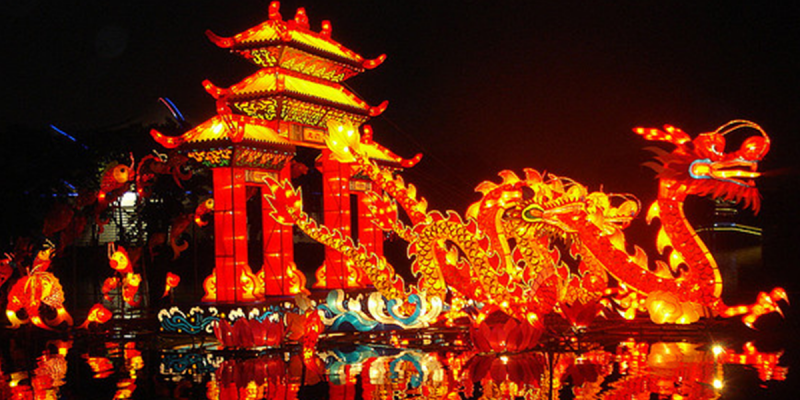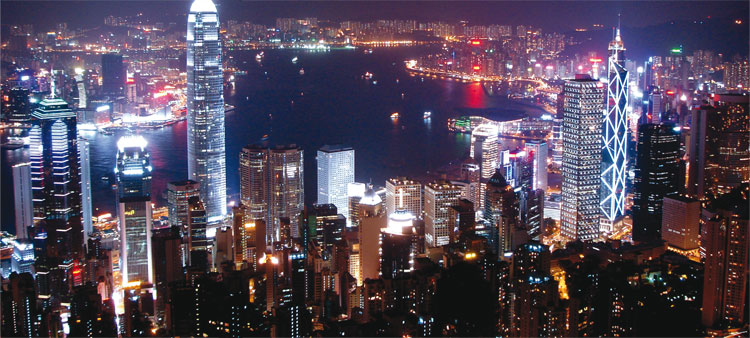ASIA BELONGS TO PEOPLES OF ASSIA
| Activities - Books |
The Shanghai Forum 2016, View from Serbia

The topic of the recently held 11th Shanghai Forum was “Interconnectivity, Integration and Innovation: Building Community of Common Destiny in Asia”. The work of this, in many was unique international gathering, brought together seven hundred scientists, experts, politicians and businesspeople from all over the work; during three days of this symposium were delivered some 100 presentations. Besides the participants from China and Asian countries, who have naturally comprised the majority of participants, other most numerous participants came from Europe, and thereafter from Americas, Africa and Australia.
The attendants found particularly interesting presentations of former President of Indonesia Mr. Susilo Bambang Yudhoyono, Secretary-General of the Nordic Council Mr. Dagfinn Høybråten, former Italian Prime Minister Mr. Enrico Letta, former US Secretary of Treasury Ms. Rosario Marin, Nobel Prize Laureate (2007 Climate change) Mr. Frans Berkhout, Fudan University prof. Wu Shinbo, Director in the Chinese Ministry of Finance Guoqi Wu, Vice President of the BRICS New Development Bank Mr. Paulo Nogueira Batista, and others.
The three-day free academic exchange of views centered on the future of Asia, its economic and technological development in the 21 Century, integration and the role in the world affairs. The starting points were that, over the post Cold War period, Asia has established itself as the region with the most dynamic economic, technological and scientific growth in the world. Asia is the largest market in the world providing great contribution to end the world economic crisis as well as to safeguard peace and stability. Accordingly both, Chinese and foreign participants emphasized that Asia should play greater role in managing of global affairs, defusing the crises hotbeds and in decision making, in general. “We cannot be happy with mere right to vote in United Nations and other international forums. It is only natural that we take part in real decisions making in all matters concerning common destiny”. This was one of prominent views shared by participants of the Forum.
“We need to always be aware and undertake common position that Asia belongs to peoples of Asia”. This standpoint, as expressed at the closing plenary session, was a summary of many specific proposals how to foster the future of the largest world continent. It was primarily addressed to the out-of-region powers to refrain from interfering into affairs of Asia.

Economic, infrastructural and cultural connectivity, win win cooperation, coordination and leadership - are the key preconditions for Asia to assume the role that belongs to it at the global level. A broad integration of Asian countries on the bases comprising common destiny, full equality and mutual benefits, is the natural aspiration and the best way for further prosperity of Asia and its contribution to recovery of the global economy – was one of frequently expressed views.
In order to sustain and strengthen process of innovation, integration and dynamic development, Asia needs a dynamic leadership - is the opinion of renowned Chinese scientist, Prof. Wu Xinbo, one of the leaders of the Fudan Development Institute. He considers that even the Association of South-East Asian Nations (ASEAN) lacks dynamic leadership capacitated to respond to the contemporary development challenges.
Presently, China is the second and Japan is the third most powerful economy in the world. Economies of India, Indonesia,Kazakhstan and other Asian countries, are rapidly growing, thus contributing to a dynamic economic development of the largest continent. Japan chairs G-7, whereas China chairs G-20 Group. China is the initiator of the Shanghai Cooperation Organization, hosts the New Development Bank (NDB), founded by the BRICS countries and the Asian Infrastructure Investment Bank. Asian countries and the new financial institutions are increasingly investing in innovation, renewable energy sources and generally in the “green” development.
The multidimensional global initiative “One Belt, One Road”, launched in 2013 by President Xi Jinping, has opened broad prospects for a faster development in a large part of the world spreading from the Pacific to the Atlantic. The essence of this initiative comprises development, connectivity, and win win benefits. Unlike some other initiatives and integration that are narrow oriented to custom free commerce, locked for others, the “One Belt, One Road” Initiative is broad, opened, and development-oriented, without formal membership. As an example of closed initiatives, a reference was made to the Trans Pacific Partnership - TPP (USA, Canada, Mexico, Japan, Australia, the Philippines, Singapore, Malaysia, Peru, Brunei, Vietnam).
The point was made that China also gives her significant input to the economic development at the global level, especially to the development of the developing countries (South-to-South cooperation), by modifying the obsolete economic structures and in particular by building modern infrastructures. In doing so, neither China nor the new international financial institution established by Chinese capital or upon her initiative (NDB, AIB) discriminate borrowers by using political criteria or by interfering in the their internal affairs.
This finding was supported by Brazilian Paulo Nogueira Batista, Vice President of the New Development Bank (NDB). He said that, regardless of the NDB being established by the BRICS countries it is not a BRICS’ bank, and that the NDB’s 50 billion dollar founding capital was not earmarked for development of BRICS members but rather for developing countries in general. While expressing cautious and fair attitude towards the World Bank (WB) and offering cooperation to it, together with providing assurances that the NDB is neither competition nor replacement but rather “assistance” and “supplement” to the existing system of international financial institutions (WB, IMF), Batista spoke, with a hint of pride, about the advantages of the NDB. “We are mere technical bank, since the loan applications are decide solely by assessing the quality and credibility of projects, rather than by setting ideological or political conditions or by interfering in the internal affairs of countries applying for loan” - says Batista. He adds that the NDB resolves each loan-application within 6 months, unlike the WB where the procedure takes 16 months, on average. The NDB has only 100 employees, says Batista, letting the audience itself to compare this figure with oversized and expensive bureaucracy of the WB or the IMF.
In order to vigorously launch and exploit its vast developmental potentials, and, in particular, to exercise intrinsic role and responsibilities in managing of global affairs according to its economic power, Asia firstly needs to accomplish internal integration and unity based on mutual benefits. All Chinese initiatives are open for other parties, and are not aimed at acquiring privileges, domination, or isolating any other country. An excellent example is the “One Belt, One Road” Initiative. Even though, over decades, China has been investing billions of dollars into economic development all over the world, especially in developing countries, there were no complaints or any mention of her interfering into internal affairs, or of her striving for dominance or “excellence”. Neither China deploys her armed forces around the world to guarantee security of her investments.
Asian countries possess sufficient knowledge, wisdom, and will to resolve their disputes and to manage their relations in mutual interest, while preserving stability, enhancing understanding and comprehensive cooperation. This view of participants at the Shanghai Forum sounds as a message to out-of-region factors which might intend to exploit unresolved issues in relations between China and some of her neighbors for own geopolitical objectives.
It goes without saying that China is not and cannot be satisfied when, for instance, the USA tries to exploit such issues, or when it seeks proxies to harm legitimate interests of China. A more serious one among such issues is the dispute with Philippines over the South China Sea.
China offers to her involved neighbor to resolve the dispute peacefully and in direct negotiations, without involvement of any other external actor. Attempts to internationalize this issue lack, both, legal grounds and political justification. Internationalization does not lead to any solution but rather to unnecessary distrust, deterioration of the atmosphere and postponement of sustainable solution. Consequently, China’s position against internationalization is legitimate and should not surprise anyone. The sooner direct negotiations between the involved parties are accepted, the sooner win win solution would be achieved. It is difficult, indeed, to believe that anyone outside of the region may have greater interest for a just and durable solution than China and other directly involved parties. The threads of escalation should be disabled and taken out. The ways to do this are direct negotiations of the involved parties and implementation of the “One Belt, One Road” Initiative, where for the latter the stability of the South China Sea is of utmost importance.
The Shanghai Forum was established in 2005 and, in no time, it evolved into one of the most famous and most influential conferences in the world. Traditionally, the organizers are the Fudan University, one of the most prestigious universities in the world, and the Korean Higher Studies Foundation. The executive organizer is the Fudan University’s Development Institute. The Forum itself is non-governmental, non-profit organization, holding its symposiums regularly each May in Shanghai.
Indeed, the Shanghai Forum is a gathering of independent scientists, philosophers and thinkers in general, instead of governmental officials taking part in operational decision-making, however this does not make the value of its findings any less. Quite the contrary. There is no doubt that everything said at this year’s Forum has quickly found its way to the major decision-making centers all over the world, to be carefully scrutinized.
If Asia is the 21st century’s center of world development, then China is the center of development Asia and growing world power.
Mr. Živadin Jovanović, President of the Belgrade Forum for a World of Equals, and high representatives of the Fudan University and the Fudan Development Institute as hosts and organizers of the Forum, talked about future mutual cooperation. He shared with them the details of the work and objectives of the Belgrade Forum as an independent, non-profit and non-partisan association, and informed his hosts about the recent establishment and goals of a new association in Belgrade - the New Silk Road Connectivity Research Center - COREC. During his three-day stay in Shanghai, he met with a great number of representatives of the Chinese and other foreign scientific and cultural institutions, companies, and the media. In these meetings were discussed the implementation of the “One Belt, One Road” Initiative and, in particular, the achievements of Serbia as an important European participant in this Project and a member of the “China + 16” group of the Southeast and Central European countries. The talks with the Chinese hosts were marked by a great satisfaction over the dynamic development of friendly relations and cooperation between the two countries, and conviction that the June visit of Chinese President Xi Jinping to Serbia signifies strong impetus to the further strengthening of mutual cooperation, which both countries consider to be of a strategic importance.
| < Prev | Next > |
|---|
| Overstatement from Davos 2017. |
Liberal corporative capitalism, for reasons of lowering traveling costs, proposed not to travel to history alone but packed togather with NATO, EU and unipollar World Order. Workers participation has good chances to step in provisionally, buying time for full scale workers selfmanagment. |









